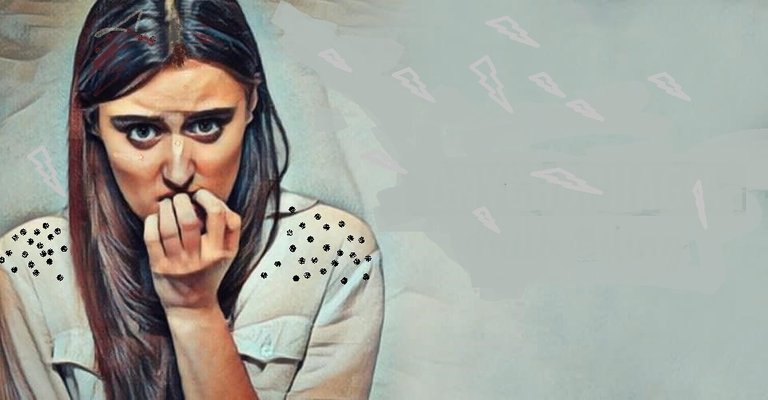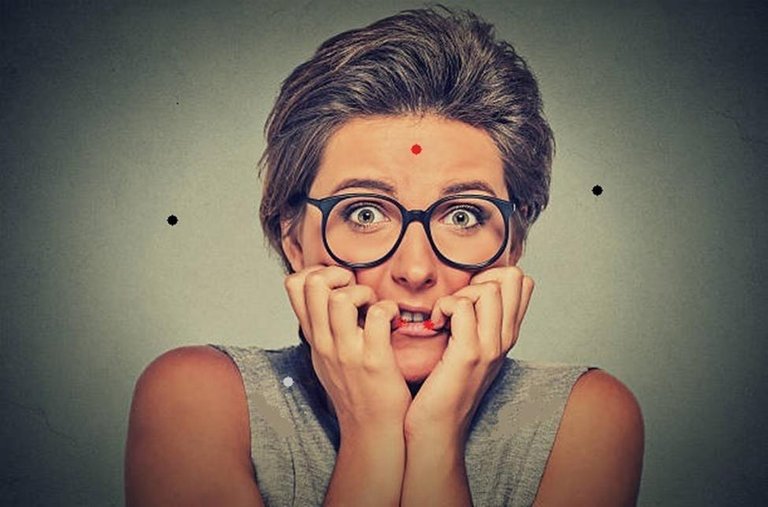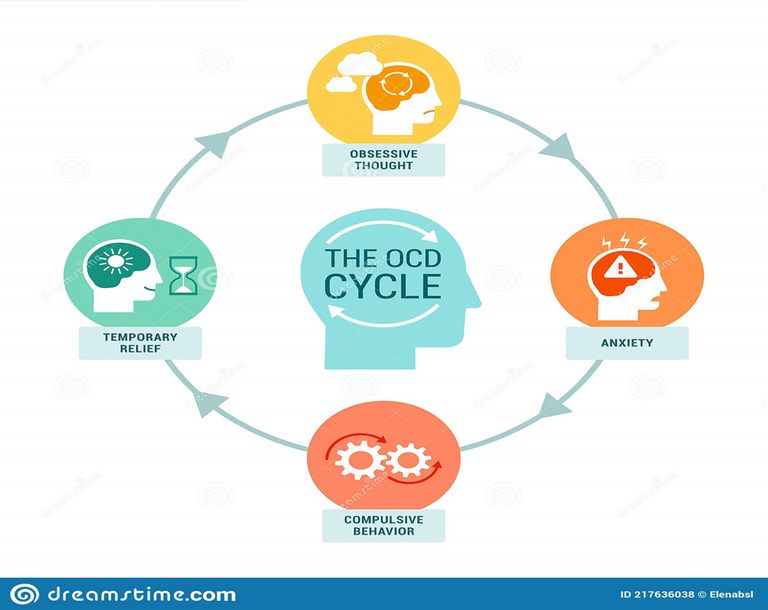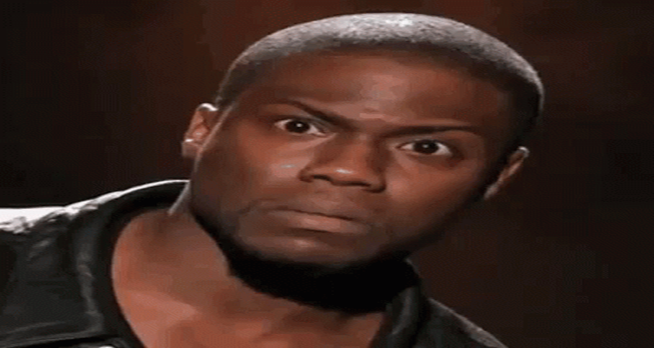Excessive nail-biting; A terrifying and horrifying nightmare
Excessive nail-biting; A terrifying and horrifying nightmare!!!

Image source: pinterest
Marcel Proust said ~” let us be grateful to the people who make us happy; for they are the charming gardeners that make our soul blossom” ~. To everyone who made me smile as a newbie in hive @gantleshaid @steemstem @OCDb @minnow booster @newsflash @jcrodriguez @repayme4568 @cribbo... (Wish I could mention everybody), everyone and anyone who supported and contributed to my introductory post, you will forever be an important part of my story. You brightened up my words and my world, inspiring me to do better, be better. I can only say thank you.
If you went through my introductory post, you already have a general idea of how fascinated I am by human behaviour and how I love to give a practical breakdown of theories …
Let’s dive into the world of;
Excessive nail-biting; A terrifying and horrifying nightmare!!!

Image source: istock photos
From a psychological standpoint, how much of a menace can excessive nail-biting be? To what extent does this phenomenon affect our physiology? Surprisingly, excessive nail-biting, also called ONYCHOPHAGIA is a widespread activity among humans.
Dating back millennia; Cleanthes the ancient Greek philosopher was said to be addicted to biting his nails. Ex-British Prime minister Gordon Brown, Britney Spears and Jackie Onassis, all had one thing in common. They all are (or were) nail biters.
Early theorist presented their opinion on the causes of excessive nail-biting, with their methodologies basically structured from a psychodynamic framework. Their perspective on nail-biting became flawed because they lacked proper empirical evidence and data to prove their hypothesis. In the modern era, there is no sufficient data on how many of us share the affliction called onychophagia, but small-scale studies indicate about 45% of teenagers and 20%-30% of adults bite regularly.
Present-day psychologists have linked excessive nail-biting with hair plucking, skin picking, obsessive-compulsive disorders(OCD) and other body-focused repetitive disorders.

Infographic source: Dreamstime
According to Fred Penzel "Everybody picks and bites to a degree, but when it gets to point that people are doing damage to themselves, that's when we treat it as something other than an everyday behaviour".
We are still trying to understand the most fundamental question many people with onychophagia spend so much time trying to find answers to and we’ve only scratched the surface in trying to pinpoint a particular reason for its cause: given that the rational part of our brain wants to quit, why do we keep biting our nails? Why?
Possible theories, hypotheses and assumptions for nail-biting
The current hypothesis: Nail biting helps provide a temporary calm by evening out our emotions. it provides stimulation; when we're stressed out, frustrated or bored. However, on the flip side, nail biters sometimes face serious physical and social discomfort. Let’s get a general idea of the seriousness of the situation and how they feel by examining some of their typical statements which were compiled by Azrin and Nunn in the late ’90s, straight from the horse’s mouth:
“My friends laugh at me. My parents, nag, nag, and nag! It’s bad enough that I do it, now my kids are starting to do it too.”
My comment: Eeyah! Now clearly this person whoever he is sounds like he has tried everything in his power to stop nail biting but for some reason, he can’t. It's bad enough that he does it and can’t seem to stop, even though he really wants to, but now to make things worse his children look like they are following in his legacy. I can’t imagine how depressed he would be.
“I love to play cards but I don’t dare”

My comment: Nail biting making a person give up on their hobby!!! This is worse than I thought.
“When I am alone driving my car that when I nibble away the most”
“It looks ugly when I gnaw my nail, I am sure because it looks ugly to me when I see others doing it”
“If a coin or small object falls on the floor, I feel as if I’m wearing mittens, it’s so hard to pick up”
“When anyone is around, I keep my fingers folded into my palm to hide my nails.”
“It hurt so bad, but I can’t seem to stop”
“Other girls make their nails look beautiful with all kinds of nail polish, but when I tried it once, it only attracted attention to the ugliness
Additional hypothesis and assumptions for Excessive Nail biting
Penzel points out again; nail-biting can be a result of under-stimulation (i.e., bored) or overstimulation (stressed out or excited) "When they're under-stimulated, the behaviours provide stimulation, and when they're overstimulated, it actually helps calm them down," he says. “Like nicotine, the idea is that nail-biting can have a biphasic effect: it can stimulate under certain conditions and relax in others”. In my opinion, the body is always trying to create a balanced internal environment and it will use any means necessary even if it's your nails
Let take a look at other proposed hypotheses on reasons for excessive nail biting
According to Pennington and Mearin, 1942, Nail-biters in some cases may require further psychiatric examination especially if they fail to admit the fact that they excessively bite their nails. An unpopular opinion by Illingworth sees nail-biting as a harmless habit, stating the only danger lies in the attitude of people trying excessively to help nail biters stop their habit as this could cause quite a lot of unpleasantness. This is more likely to aggravate the habit causing its continuation rather than to stop it.
Most of the early explanations of nail-biting have been thoroughly disregarded. Sigmund Freud, for instance, believed that excessive nursing during infancy could lead to a so-called "oral receptive" personality — and a tendency to chew on nails and other objects, as well as a distinct preference for oral sex. He had no evidence for this idea, and subsequent followers of his ideas didn't turn up any, either. In some children, excessively nail-biting can be a form of attention-seeking device because of a determined effort to stop it.
source: https://www.vox.com/2015/4/22/8464365/nail-biting
When and how does it start?
Nail-biting typically begins between the ages of five and 10 and is common among children as well as adults. As many as one in three Americans bite their nails. One of the more noteworthy and generally surprising things about nail-biting is its high instance. It crosses every social and economic barrier. Prevalence figures for children are much higher than for adults. Results of nail-biting can result in short, ragged nails. It may also lead to damaged cuticles as well as bleeding around the edges of the nails. Infections can also develop if nails are not properly attended to.
Most relevant studies have found that nail-biting tends to peak out around puberty.
A study by Malon and Massmer studied the behaviour in the Chicago school systems and reported that nail-biting is prevalent in about 60 per cent of children aged eight to eleven.
Most people agree it is a learned habit, perhaps picked up by watching a parent or someone else biting their nails. Nail-biting is an extremely tough habit to break and treatment for it varies.
A host of research efforts both in America and Europe sought to ascertain if in fact nail-biting was linked to mental illness in one form or another. Most people would have anticipated they found a high prevalence of nail-biting among the mentally disordered; however, they found that nail-biting, in and of itself, is not systematic of any form of mental disorder or maladjustment.
Crosses all national borders, genders, and both social and economic lines, excessive nail-biting may originate from a primal need for self-grooming. It affects both the nails and the cuticles; with greater potential harm caused via infection to the cuticle. It tends to be a private affair and is a relatively isolated form of self-indulgence.
Source:https://www.streetdirectory.com/travel_guide/2779/family/nail_biting_basics.html
Excessive Nail-biting may be treated by addressing symptoms rather than the cause; it is a habit, not a disease.
SO HOW CAN EXCESSIVE NAIL-BITING BE STOPPED BEFORE IT PROBABLY STOPS US?
WATCH OUT FOR ANSWERS IN SUBSEQUENT POSTS!!!!
Your comments and contributions are welcome

RESOURCES:
Halteh P, Scher RK, Lipner SR. Onychophagia: A nail-biting conundrum for physicians. J Dermatolog Treat. 2017 Mar;28(2):166-172. doi: 10.1080/09546634.2016.1200711. Epub 2016 Jul 7. PMID: 27387832.
Onychophagia is associated with impairment of quality of life. Pacan P, Reich A, Grzesiak M, Szepietowski JC.Acta Derm Venereol. 2014 Nov;94(6):703-6. doi: 10.2340/00015555-1817. PMID: 24535041
Onychophagia (Nail biting), anxiety, and malocclusion.Pediatric Onychophagia: A Survey-Based Study of Prevalence, Etiologies, and Co-Morbidities.Winebrake JP, Grover K, Halteh P, Lipner SR.
https://www.webmd.com/a-to-z-guides/stop-nail-biting-tips
https://en.wikipedia.org/wiki/Nail_biting
Thank you so much for the mentioned ☺️
May you continue to soar higher, merry Christmas to you
You are very much welcome. Amen to the prayer. Happy new year in advance
Wow! I am happy so much 🥰, thank you
The following paragraph
seems to be copy/pasted from https://www.vox.com/2015/4/22/8464365/nail-biting
Try to write an original post. If you want to quote a paragraph that is fine but please mention your source.
That was a bit of carelessness on my path, forgot to use the quote function. I got carried away. It has been corrected.
Thank you @mathowl
A host of research efforts both in America and Europe sought to ascertain if in fact nail biting was linked to mental illness in one form or another. Most people would have anticipated they found a high prevalence of nail biting among the mentally disordered; however, they found that nail biting, in and of itself, is not systematic of any form of mental disorder or maladjustment.
Nail biting crosses all national borders, genders, and both social and economic lines and may also originate from a primal need for self-grooming. It affects both the nails and the cuticles; with greater potential harm caused via infection to the cuticle and nail biting tends to be a private affair, and is a relatively isolated form of self-indulgence.
https://www.streetdirectory.com/travel_guide/2779/family/nail_biting_basics.html
Thank you for your diligence Mr. Owl. @sam999, continued plagiarism can get your reputation reduced and, in another issue, can lead to being muted in the proofofbrain and @stemgeeks communities. StemGeeks is a good and particular group that will screen its content regardless of popularity or rewards. When all you have to do is cite the sources you use, you must take care to ensure you use them.
Thank you for your time and have a great week.
corrected @mathowl
Dear @sam9999,
Do you mind supporting the Hive Authentication Services proposal? That would be much appreciated!
You can do it on Peakd, ecency, Hive.blog or using HiveSigner.
https://peakd.com/me/proposals/194
I wish you all the best for 2022! Have a Happy New Year!
Dear @sam9999,
Your support for our previous proposal has been much appreciated but it expired end of December!
Do you mind renewing your vote to our proposal for 2022 so our team can continue its work!
You can do it on Peakd, ecency, Hive.blog or using HiveSigner.
https://peakd.com/me/proposals/199
We wish you a Happy New Year!